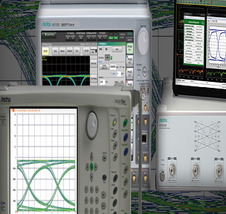Thermal Analysis
Thermal modelling plays a crucial role in conducting thermal failure analysis and in identifying thermal failure through thermal structural analysis (TSA), offering designers an in-depth understanding of potential thermal challenges resulting from their circuit designs. It aids in the selection of appropriate cooling systems and PCB design methodologies, enabling designers to optimize component placement in the layout.
Our Expertise

Mitigate Thermal Risks
We identify potential thermal risks and provide proactive strategies to prevent thermal-related failures.

Material Selection
Our analysis assists in selecting suitable materials that enhance thermal conductivity and reduce the risk of overheating.

Cost-Effective Solutions
Our expertise enables us to offer cost-effective thermal management solutions that don't compromise on performance.
Parameters for Comprehensive Thermal Analysis
Our thorough approach considers a range of critical parameters to ensure accurate thermal analysis tailored to your specific needs.
- Local Ambient Temperature: Understanding both Internal and external environments (Ambient conditions) and limitation of the boundary conditions
- Airflow: Implementation of Ventilation and Air cooling system (Air Circulation by Exhaust Fans) play a key role in reduction of the heat distributions
- Physical Constraints: We analyze space limitations and design constraints that might influence thermal management strategies
- Component Power Dissipation: Accurate assessment of transient power dissipation aids for effective design and lower the failure through heat dissipation methods
- Component Size: Size affects heat generation and dissipation, and we account for this in our analysis
- Packaging Materials: Different materials have varying thermal conductivities that impact overall heat transfer
- Interconnections: The type of interconnections between components affects heat transfer or flow of temperature within the system
- Thermal Cooling System: If applicable, we consider the presence and effectiveness of thermal cooling systems
- Thermal Conductivity: Material properties like thermal conductivity influence heat dissipation
- Power Density: We analyze power density across substrate, package, nearby components and circuit board






